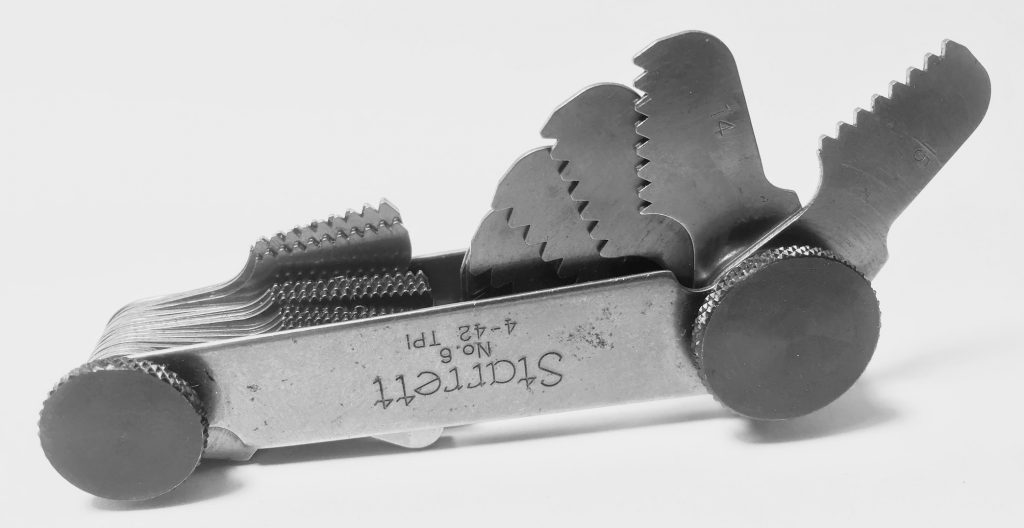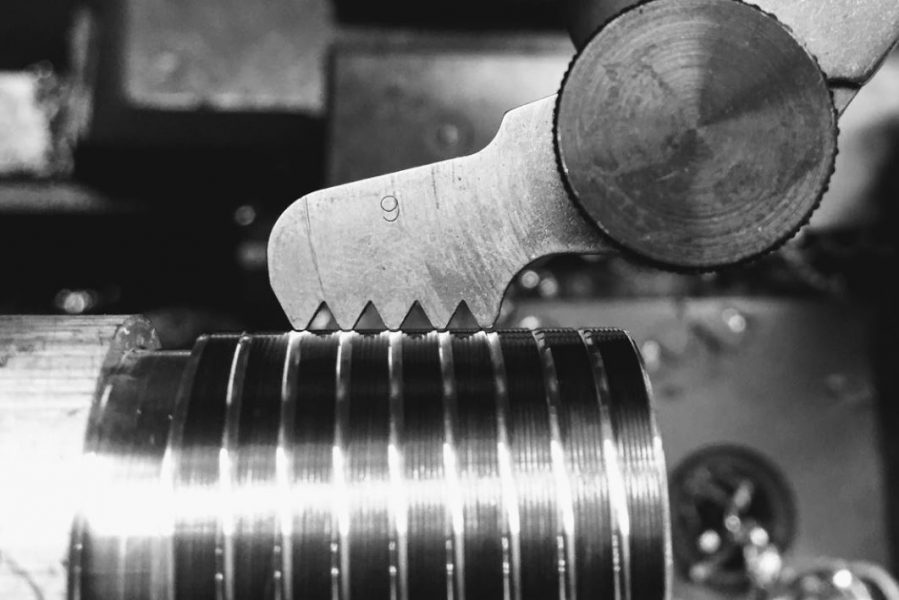A thread pitch gauge is a measuring tool used to determine the pitch or the distance between adjacent threads on a threaded object, such as screws, bolts, or nuts. It is a valuable instrument in various industries, including manufacturing, automotive, and construction, where precise thread measurements are crucial for ensuring proper fits and functionality.
The typical design of a thread pitch gauge consists of a thin, flat, and flexible plate or set of blades. These blades have a series of teeth or notches cut into them, each with a specific pitch measurement. The pitch measurements are marked or engraved next to the corresponding notches.

To use a thread pitch gauge, you align the tool’s notches with the threads on the object being measured. You then slide the gauge along the threads until you find the notch that matches the spacing of the threads accurately. The pitch measurement indicated by the selected notch corresponds to the thread pitch of the object.
Thread pitch gauges come in various types to accommodate different thread forms, including metric, Unified Thread Standard (UTS), and Whitworth threads. Some thread pitch gauges also feature a go/no-go design, allowing you to quickly check if the threads conform to the specified pitch range.

These gauges are essential for quality control and maintenance tasks, as they help verify the correctness of threaded components and ensure that they meet the required specifications. Proper thread pitch is critical to achieving secure and functional connections in various mechanical and construction applications.
